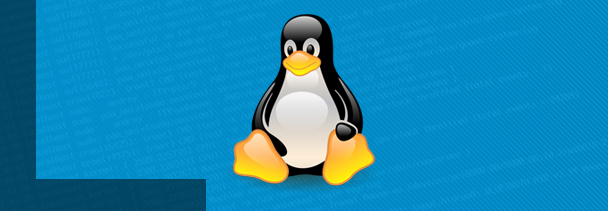Linux Foundation Launches Online Linux Foundation

Today opened access to educational materials of the course "Introduction to Linux" .
The course was created by the Linux Foundation and runs on the edX platform .
About the course:
Linux provides the work of 94% of supercomputers, most servers on the Internet, major financial transactions in the world and billions of Android devices. In short, Linux is everywhere. It is present in a variety of different architectures, from mainframes to servers, desktops, mobile devices, and to a stunning variety of hardware.
This course covers the various tools and techniques commonly used by Linux programmers, system administrators, and end users to do their daily work in the Linux environment. It was created for experienced computer users who have little or no use of Linux, whether they work individually or in a corporate environment.
After completing this course, you will know well how to work with the main Linux distributions in a graphical or command shell. You can continue your training as a user, system administrator or developer using the acquired skills.
UPD: The course is very simple, it is for users who really run Linux for the first time
From the course author:
This course is based on the original Linux Foundation's Introduction to Linux course, which was always taught with an instructor in the classroom or virtual classroom via the Internet. The Linux Foundation believes that the challenge of changing this course for free use by the community has been well worth the effort.
The main distributions under study will be:
- Ubuntu
- OpenSUSE
- CentOS
All training materials for the course are immediately available. The course is not limited in time. To obtain a certificate of completion, you only need to pass the final exam well enough.
Course content
1. Introduction
2. Linux Philosophy and Components
3. Linux Structure and Installation
4. Graphical Interface
5. System Configuration from the Graphical Interface
6. Command-line Operations
7. Finding Linux Documentation
9. User Environment
10. Text Editors
11. Local Security Principles
12. Network Operations
13. Manipulating Text
14. Printing
15. Bash Shell Scripting
16. Advanced Bash Shell Scripting
17. Processes
18. Common Applications
- Linux Foundation
- Linux Foundation Training
- Course Linux Requirements
2. Linux Philosophy and Components
- Linux History
- Linux Philosophy
- Linux community
- Linux terminology
- Linux Distributions
3. Linux Structure and Installation
- Linux filesystem basics
- The boot process
- Linux Distribution Installation
4. Graphical Interface
- Session management
- Basic operations
- Graphical desktop
- Labs
5. System Configuration from the Graphical Interface
- System, Display, Time and Date Settings
- Network manager
- Installing and Updating Software
- Labs
6. Command-line Operations
- Command Line Mode Options
- Basic operations
- Searching for Files
- Working with files
- Installing Software
- Labs
7. Finding Linux Documentation
- Documentation Sources
- The man pages
- GNU info
- Help Command
- Other Documentation Sources
- Labs
- Filesystems
- Filesystem architecture
- Comparing Files and File Types
- Backing up and compression data
- Labs
9. User Environment
- Accounts
- Environmental variables
- Recalling commands
- Command aliases
- File permissions
- Labs
10. Text Editors
- Basic Editors: nano and gedit
- Labs
- More Advanced Editors: vi and emacs
- Labs
11. Local Security Principles
- Understanding linux security
- Understand the uses of root
- Using the sudo Command
- Working with passwords
- Bypassing User Authentication
- Labs
12. Network Operations
- Introduction to Networking
- Browsers
- Transferring files
- Labs
13. Manipulating Text
- Modifying files
- sed and awk Commands
- File Manipulation Utilities
- grep Command
- Misc text utilities
- Dealing with Large Files and Text-related Commands
- Labs
14. Printing
- Configuration
- Printing operations
- Labs
15. Bash Shell Scripting
- Features and Capabilities
- Syntax
- Constructs
- Labs
16. Advanced Bash Shell Scripting
- String Manipulation
- Boolean expressions
- File tests
- Case structure
- Debugging
- Tips and Tricks
- Labs
17. Processes
- Introduction to Processes and Process Attributes
- Listing processes
- Process metrics and process control
- Starting Processes in the Future
- Labs
18. Common Applications
- Internet applications
- Multimedia applications
- Graphics editors
- Using Secure Shell
- Labs
- Final exam
